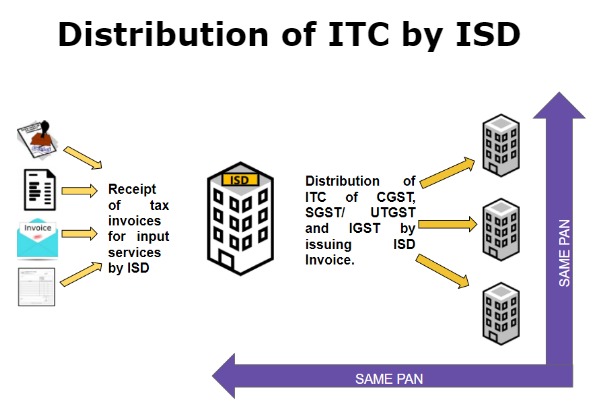K. Vinod Chandran, J.@mdashThe Petitioners are, an Association and two Industries engaged in the "Rubber Product Industry" wherein the Government sought to revise the Minimum Wages as per the Minimum Wages Act, 1948 (for brevity ''the Act''). The Government in accordance with Clause (b) of sub-section (1) of Section 5 of the Act brought out a Notification in the Official Gazette publishing the proposals for Revision of the Minimum Wages for Unskilled Workers, Skilled Workers and Highly Skilled Workers employed in the Rubber Products Industry. The same is produced herein as Ext. P2. Objections were called for from the Employers as well as the Employees and as is provided in the Proviso to sub-section (2) of Section 5, the Advisory Board was also consulted. Such consultation is evident by the recommendation made by the Advisory Board through Ext. P4(g). Subsequently, Government came out with Ext. P5-Notification revising the Minimum Wages and providing for such Minimum Wages to be paid to various categories of Employees engaged in the Rubber Products Industry. Ext. P5 is assailed in this Writ Petition on the ground that what had not been proposed in Ext. P1 has been additionally included in Ext. P5, i.e., the, service weightage, and the provision for monthly basic wages for the Managerial Staff. One of the other contentions raised is that the Government while revising the Minimum Wages in the Industry had not taken into account the vast disparity in the capacity of the Employers. I have heard learned Senior Counsel Sri U.K. Ramakrishnan and the learned Government Pleader on behalf of Respondents 1 & 2 as also the 3rd Respondent.
2. The contention raised against the ''service weightage'' is insofar as the same having not figured in the proposals notified by the Government as per Ext. P1 as also the same being not includable in the very Concept of Basic Wages. The learned Senior Counsel has placed reliance on
3. Muir Mills Company Ltd. was a case in which the Employees were entitled to two types of additional emoluments. One, production linked bonus and the other an incentive bonus, latter of which would be payable on a certain standard of production being achieved. The Government under the provisions of the Industrial Disputes Act, 1947 (for brevity ''the I.D. Act'') made an order laying down the standards of basic wages and dearness allowance. The Employers then raised the basic wage payable to that standard and discontinued the additional emoluments, which had, by then become a part of the terms of service. The Management''s contention that the prescription of basic wages included the additional emoluments was negatived. It was in that context that the Honourable Supreme Court, held that "it is reasonable to think that only such emoluments which are receivable by the Workmen generally, as a normal feature of their earnings and therefore, satisfy the characteristics of "basic wage" are intended to be covered by the consolidation". It is pertinent that the learned Judges of the Honourable Supreme Court also noticed that there may be variables which could be taken into account by the Government while fixing such basic wages.
4. This Court is not convinced that the decision can be applied squarely in the present case, dealing with the fixation of Minimum Wages as per the Act. The primary fallacy in the argument of the Petitioners, is that the additional emoluments were sought to be denied to the workers in the Muir Mills''s case, on the strength of an order brought out to ensure a minimum standard of wages. Then it also has to be noticed that ''service weightage'' as laid down by Ext. P5 would form a part of the basic wages, as is specifically stated in Ext. P5.
5. In providing for ''service weightage'', it cannot, also be said that the Government has exceeded its powers, since the weightage provided, would not be uniform to all Employees. True, the Minimum Wages fixed, is fixed for a particular category of the Employees and that remains uniform to that category of Employees engaged in the Rubber Products Industry. The prescription of ''service weightage'' as is provided under Ext. P5 is specifically for continuous service in an establishment at the rate of 1% of the revised basic wages, for every completed year of service, provided the Employee has three years continuous service in an establishment on the date of commencement of Ext. P5-Notification. This benefit was provided in the nature of weightage for continuous service and was to be included in the "basic wages" prescribed by the Notification. This cannot be said to be a component which is in the nature of an incentive but would only be a variable, which every Employee would be uniformly entitled subject only to the continuous period of service rendered by the Employee.
6. The next contention with respect to the ''service weightage'' is that the same had not been included in the proposals. In fact, the provision for monthly rate of wages also has been challenged on the ground that the same was not included in the proposals and the Employers never had an opportunity to represent against the same. As has been laid down by the Honourable Supreme Court in
7. Looking at the facts of the case and specifically the consultation attempted with the Advisory Board, it is evident that both the Employers and the Employees had submitted representations and objections to the Government as well as the Advisory Board. The Petitioners do not have a contention that they were not heard on their objections either by the Government or by the Advisory Board. Nor can such contention be sustained since a Full Bench of this Court, has, in
8. The very same reasoning would apply to the monthly salary also. It is to be noticed that in Ext. P2, the Managerial Staff were included in the category of highly skilled workers and in fact there was a provision for monthly salary wherein it was prescribed that the monthly salary of any category of Workmen shall be the amount fixed for one day multiplied by 26. This was in fact expanded upon in Ext. P5, wherein the managerial staff were removed from the category of highly skilled workers and was placed in the category of monthly rated workers. While placing them in the category of monthly rated workers, a separate minimum wage was prescribed for them, on the basis of the monthly remuneration payable to them. The Government cannot be faulted for doing so, since the original proposal itself included the Managerial Staff. In Ext. P5 they were designated as a different category and separate wages on a monthly basis was provided for them. At best, a computation was done making the daily wages, monthly; and a figure arrived at determining the monthly basic wages. This Court is of the opinion that Ext. P5 cannot be assailed on the ground of the above contention raised by the Petitioners.
9. The next contention is with respect to the disparity between the Employers engaged in a particular industry. It is urged that rubber products, is an area, wherein the Employers range from multinational Companies, to industries in the small and medium sector and also include individual entrepreneurs carrying on small units. The learned Senior Counsel places reliance on the decision of this Court in
10. A Division Bench of this Court in
11. More than two decades back the Honourable Supreme Court in
12. One other contention on Ext. P5 is with respect to the inclusion of Managers and Supervisors for whom also the Minimum Wages has been prescribed which, the Petitioners contend, is beyond the scope of the powers conferred under the Act for reason only of them being not includable in the definition of ''Employee'' under the Act. A reading of the definition of ''Employee'' would clearly indicate that a Manager or Supervisor would not come under the definition, nor was it intended that all persons engaged in an Industry, irrespective of the nature of their work, should be included in the definition. It is also pertinent that sub-clause (iv) of Clause (e) of Section 2 of the Act defines ''Employer'' and includes within its definition "any person responsible to the owner for the Supervision and control of the Employees or for the payment of wages". In such circumstances, the Government could not have prescribed Minimum Wages for the Managers, as has been done in Ext. P5. With respect to supervisors the Full Bench decision cited above upheld the prescription of such wages to the Supervisors under the Act. A Counter Affidavit has been filed by the Government which would indicate that what was intended was to cover "Managers without administrative and managerial powers who come within the purview of the Act. It is also admitted that any Manager having managerial, administrative and financial powers does not come within the purview of the term ''Employee''". Such a distinction is merely illusory and Managers definitely would not come within the definition of ''Employee'' as defined under the Act. The provision of ''Minimum Wages'' to Managers in Ext. P5 cannot be enforced by the Government and to that extent, Ext. P5 would be set aside. However, in all other respects, Ext. P5 is confirmed.
The Writ Petition is partly allowed leaving the parties to suffer their costs.

